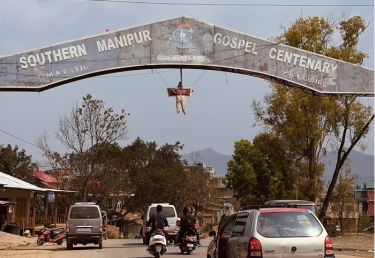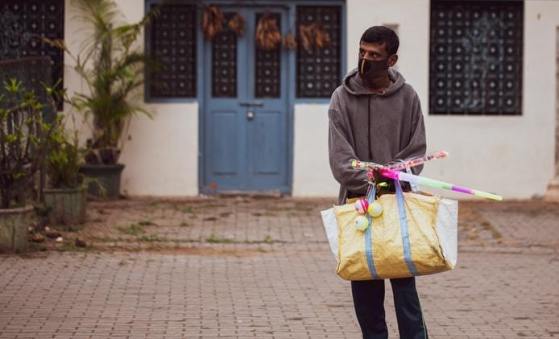
Manipur police have uncovered an international weapons trafficking ring operating from Myanmar while the state faces fresh political turmoil as Kuki-Zo leaders prevent their elected representatives from joining any future administration.
The breakthrough in the arms investigation came with the capture of Sinam Somendro Meitei, alias ‘Richard’, who holds the position of self-proclaimed Lieutenant Colonel and Project Secretary within the banned United National Liberation Front (UNLF-P), a separatist Meitei insurgent group. His arrest has revealed significant breaches of the peace agreement his organisation signed with state authorities in November 2023.
Authorities received specific intelligence on 24 June about gun-running activities in Imphal, leading them to detain Lanchenba Nongthombam, who operates Nongthombam Gun House. Police allege he conducted weapon sales without maintaining required documentation. Under questioning, Nongthombam’s statements directed investigators to Richard.
Officials report that UNLF-P members transported foreign-manufactured weapons across the Myanmar border and sold them throughout India. The network even reached as far as Punjab, where one case has been confirmed, while investigations continue in additional states. These operations violate Section 10 of the Arms Act, which forbids importing foreign weapons without specific sporting permissions.
Investigators discovered multiple firearms at Richard’s home, including four American-made pistols, an Austrian revolver, an Indian pistol, numerous foreign ammunition rounds, communication equipment, and expensive mobile devices. Richard carries an extensive criminal history spanning almost thirty years, beginning with a 1995 arrest under anti-terrorism legislation, followed by similar charges in 2005 and 2006.
In 2003, authorities accused Richard of facilitating insurgent movement between Guwahati and Bangladesh while handling illegal foreign currency transactions. Following his recent detention, Richard attempted to invoke his group’s ceasefire arrangement to escape prosecution, but police rejected this claim given the severity of the alleged trafficking network.
The UNLF-P, under Kh Pambei’s leadership, created history by becoming the initial Meitei insurgent organisation in Imphal Valley to accept a ceasefire. Security officials initially expressed doubts about the agreement’s sincerity, suggesting it might represent a tactical manoeuvre to reduce law enforcement pressure.
The group’s proposal to establish camps near Kuki-majority areas met strong resistance from security agencies concerned about reigniting ethnic violence that has already killed over 260 people. Despite the ceasefire’s peace objectives, multiple 2024 incidents indicate UNLF-P operatives continue activities, including allegedly capturing weapons from security personnel.
Separately, security forces detained two militants, including a female member, from banned organisations in Thoubal and Imphal West districts. Authorities apprehended a woman belonging to the prohibited Prepak (PRO) from Salungpham area in Thoubal on July 5, while capturing another member from Nagamapal area in Imphal West district.
During operations in Chandel district on July 4, forces recovered substantial weaponry including twelve rifles, four improvised explosive devices, and four grenades. These intelligence-driven searches form part of broader efforts to arrest individuals involved in extortion and criminal enterprises across the state.
The state has endured repeated arms theft incidents, with over 6,000 weapons reportedly stolen from government arsenals since unrest began. Authorities have conducted multiple recovery operations, including retrieving 307 weapons on 27 February (with 246 surrendered by the Meitei group Arambai Tengol), 328 weapons on 14 June, and 203 firearms on 4 July in one of the largest single-day recoveries.
The political landscape has grown more complex following a resolution by influential Kuki-Zo civil society organisations prohibiting their ten legislators from participating in government formation. The decision emerged from a joint meeting held on July 3 at the Kuki Inpi Manipur secretariat in Bijang, Churachandpur.
Representatives from Kuki Inpi Manipur and affiliated bodies attended, including the Kuki Students’ Organisation-General Headquarters, Kuki Khanglai Lawmpi-GHQ, Kuki Christian Leaders’ Forum, Kuki Women’s Union-GHQ, Kuki Women Organisation for Human Rights-GHQ, and Kuki Chiefs’ Association-Manipur, alongside departmental heads and district officials.
The unanimous resolution stated that no Kuki-Zo MLA shall “participate or take part in any manner in the formation of a new popular government in the state of Manipur”. The declaration emphasised that Kuki-Zo communities would never compromise their ancestral territories, cultural identity, or political and economic entitlements.
This affects ten Kuki-Zo legislators, including seven from the BJP, who have advocated for separate administrative arrangements and Union Territory status since ethnic violence erupted on 3 May 2023. The World Kuki-Zo Intellectual Council revealed in a January memorandum to the Governor that Kuki tribes have demanded statehood “since 1946-47”.
The Kuki-Zo organisations described their resolution as representing the “collective political will and aspiration of the Kuki-Zo people” and declared it binding on all representatives and community groups. This development presents significant challenges to political normalisation efforts without addressing underlying Kuki-Zo grievances.
Manipur remains under President’s Rule since 13 February following Chief Minister N Biren Singh’s resignation. The state assembly, whose term extends until 2027, has been placed under suspended animation.
Security forces have maintained search operations throughout Manipur since ethnic religious violence began between Meitei and Kuki-Zo communities. The conflict has resulted in more than 260 deaths and displaced thousands of residents.




